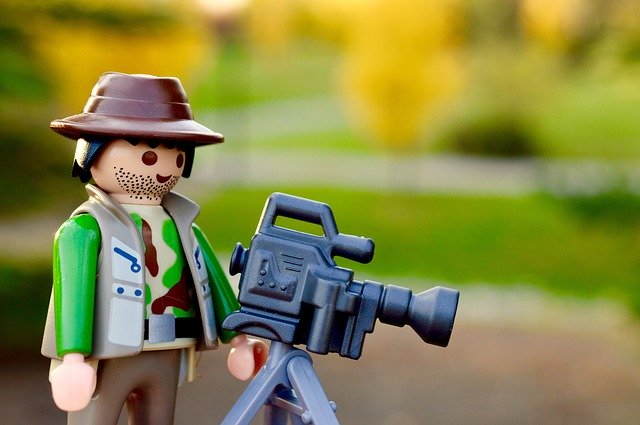
For an amateur filmmaker, making mistakes is an important part of the creative process. Making errors when filming enable people to learn from their stylistic choices and this can lead to better decisions in the future. However, it is interesting to note that there are some amateur filmmaking mistakes that are easier to avoid than others.
So, let us discover 3 of the most common filmmaking errors and what you can do to avoid them.
A Weak Story
When making a film, scripts often need multiple drafts, as well as a final polish. It is therefore vital that you have gone through your script multiple times before starting your shoot. At a basic level, your story needs structure. This means that your script should have a beginning, a middle, and an end. Of course, the details of your story do not have to be revealed in this specific order as flashbacks and flashforwards are incredibly useful devices for keeping an audience engaged. But without structure, your film will lack direction.
Great films need great stories. Without a story, your script is unlikely to hold the attention of your audience. When planning a film, writing the story is a fundamental part of the process. Taking the time to write and research ideas for your film might seem intuitive, but when focusing on other elements of film production, your actual storyline can lose focus. If you would like help with scriptwriting, you might want to consider attending film school. Nowadays, you can even attend an online alternative to film school so there are plenty of fantastic options out there if you want to hone your story writing skills.
Poor Planning
So much goes into filmmaking that it is totally normal to feel overwhelmed at first. Everything from storyboarding, to shot lists and crew positions can all take time to master and nothing can be left to chance. Naturally, there are elements of a shoot that will change during a day of filming and so some degree of flexibility is key. Nonetheless without carefully planning your shots, and delegating who is taking care of what, your film can begin to spiral out of control.
Again, the development phase of your film should not be underestimated. In order to make a good amateur film, your story needs to be original and therefore researching how to bring your vision to life on film is crucial. Where filmmaking is concerned, learning your craft is all about doing things that are different and unique. By learning new skills in development, production, marketing, or distribution, your amateur films can go from strength to strength. In essence, you should not be afraid to experiment when realizing your filmmaking vision.
Bad Sound and Lighting
Good sound is integral if you want your amateur film to stand out from the crowd. If your film contains actors, then your first step should be to make sure that they can be heard and that it is possible to understand what they are saying. Consequently, investing in external microphones is often the best way to improve the sound quality of your film. Wherever possible try to avoid locations with excess background noise or settings where you cannot control the sound around you. Indoor areas often make better filming locations as you can turn off electronics or appliances and achieve a clear sound quality.
Similarly, although an eye for good lighting is something that is learned over time, it is no secret that your audience needs to be able to see what has been filmed clearly. Put simply, your lighting choices can dramatically boost the production values of your film. One tip is to make use of natural light wherever possible. If you are on a small budget and cannot afford to invest in expensive lighting equipment, try to plan any wide shots at a time when natural light is adequate. For example, interior shoots work best when the sun is on the correct side of the building.
Ultimately, the best way to improve your filmmaking skills is to put everything that you have learned into practice. By persevering with your filmmaking projects, your abilities can grow, and you can make films that look professional and captivate your audience. Above all, continuing to make films is an effective method for growing out of most amateur mistakes.
One way to boost your filmmaking skills is by filming and editing videos from your phone. To learn more take a look at these 10 steps to creating amazing videos from your phone.

No comments yet.